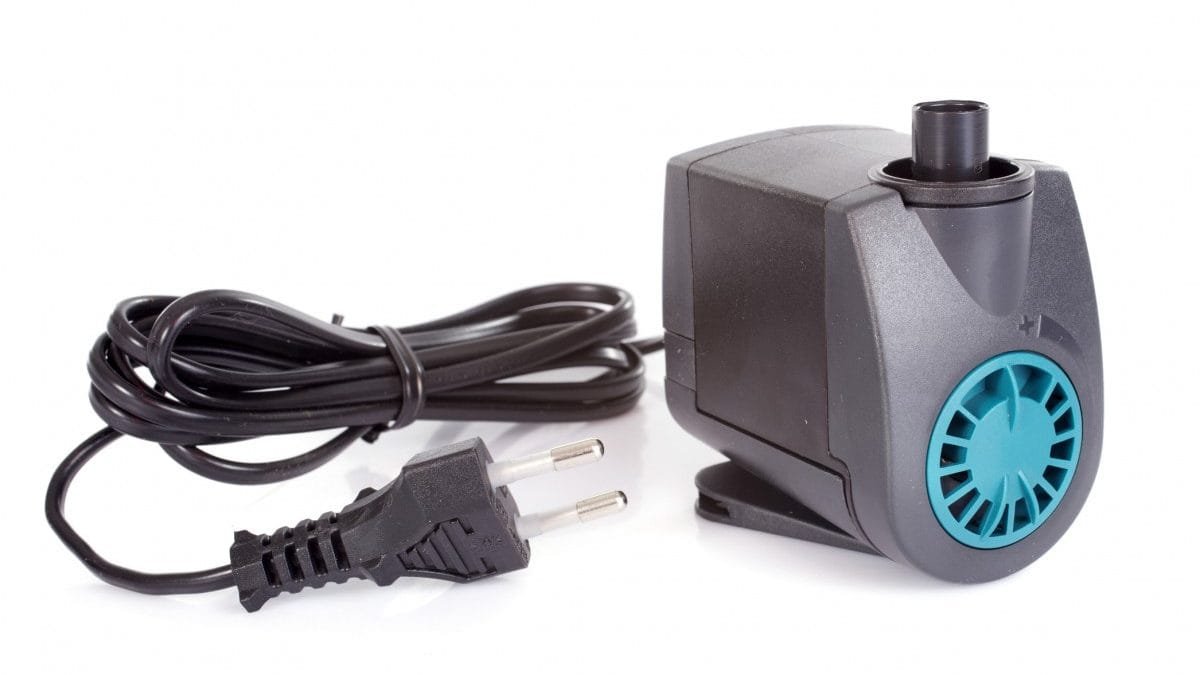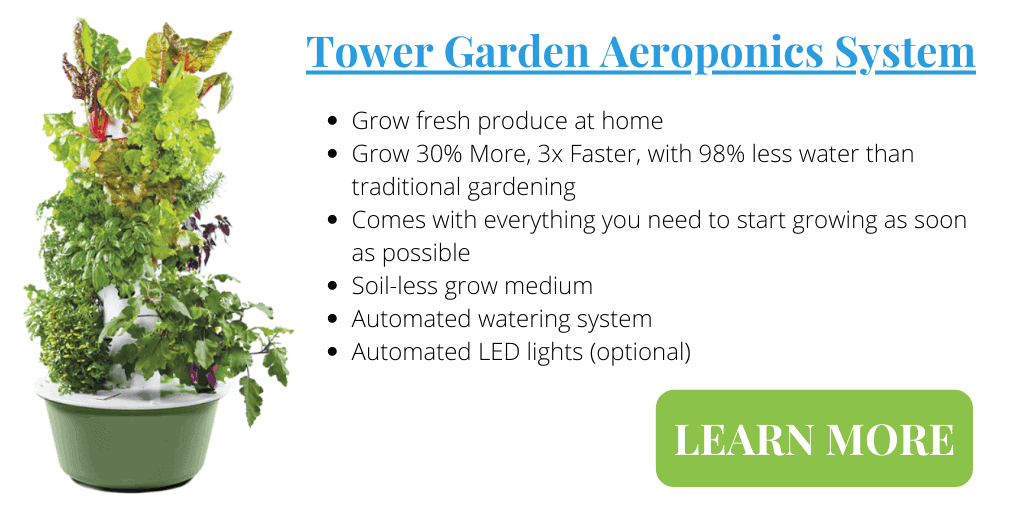The water pump in your hydroponics system is essentially the heartbeat of your system, delivering the life-giving nutrients and moisture to your plants. Problems with a hydroponic water pump can be devastating to your plants, especially if the fault goes unnoticed for some time. Here are some common hydroponic pump problems and how to fix them to get your nutrients flowing!
Common hydroponic water pump problems include:
- The pump is noisy
- The pump runs continuously
- The pump won’t start
- Low water pressure from the pump
Early detection of pump problems and taking steps to prevent pump failure or erratic operation is important to keep the plants strong, healthy, and flourishing in the system. Most of the problems I’ve come across in my hydroponic systems have been fairly simple to diagnose and fix. Here’s some quick tips that may help you out.

Common Signs Of A Hydroponic Pump Problem
In many hydroponic designs, the pump is an important part of keeping the cycle of nutrient solution flowing to your plants, keeping them hydrated and ensuring they’re well-fed.
The first clear sign of a water pump problem is visible in wilting leaves. Within an hour of a pump failure your plants will start to droop because they are not getting the moisture and nutrients to the roots that they need.
Another indication of a watering system failure is silence. Even though the pump in your nutrient reservoir does not generate much noise, you will hear a low level hum if you’re nearby.
Hydroponic pump problems can potentially affect your plants’ growth, and their fruit production if the pump problems are not identified and rectified early. Some pump problems are obvious, but some require investigation to identify the cause of the problem before taking action.
The Hydroponic Pump Is Noisy
Some hydroponic pumps are noisy right out of the box, and that is just the way they are. If, however, you have noticed a change in the sound of your hydroponic pump and it has become noisier than normal, it could indicate a problem.
Submersible hydroponic pumps are generally not very noisy, so you need to investigate as soon as possible if the noise level increases.
The following are some causes for increased noise in a hydroponic pump and what you can do to fix them.
- Low water level. The pump will become noisy if the water level drops to the point where part of the pump is exposed. Solution: top up the water and check nutrient levels. Check your hydroponic system for leaks.
- Bearing failure. Most submersible pumps have ceramic bearings to improve their longevity in the water, but the bearings can wear out, indicated by increased noise. Solution: Replace the pump as soon as possible with a spare pump. Replace the bearing on the pump and keep the pump as a spare.
- Clogged inlet filter. Many submersible hydroponic pumps have a particulate filter on the inlet to stop large debris from getting inside. Solution: Expose the filter and clean or replace it, this can also be done on a regular schedule as a preventative measure.

Hydroponic Pump Runs Continuously
Some hydroponic systems require the pump to run continuously, but this is hard on the pumps and will cause pump components to wear out faster than they should. Other hydroponic systems, such as ebb-and-flow systems, require the pump to turn on at intervals to flood the system with water and nutrients and then turn off again.
If your pump is running continuously, it generally indicates a problem with the timer rather than the pump itself.
A continuously running pump is less of a problem than a pump that does not turn on, but it can still cause problems in your hydroponic system. Nutrients can be wasted because the system can overflow, plant roots can become waterlogged, and the pump will suffer unnecessary wear.
Some timers lose their settings if the main power fails and need their schedule reset before working properly and turning the pump on and off correctly. Timers can also become faulty and default to the “always-on” position, causing the pump to run continuously.
Solution: check the timer and reset the schedule if necessary, or replace the timer.
Hydroponic Pump Won’t Start
Most hydroponic systems do not require high-pressure water pumps, so submersible pumps are most commonly used in these systems.
Non-submersible pumps may not start due to pressure switch problems and priming problems, but since most hydroponic installations use submersible pumps, we will concentrate on this type of pump.
The following problems could cause your hydroponic pump not to start.
- No main power. If the mains power has failed, or someone has inadvertently switched the power supply off, the pump will not operate. The power circuit could have tripped if water from the hydroponics system managed to wick on the power cable and drip on the socket connection. Solution: Establish the cause for no power and restore the connection.
- Faulty wiring. If your hydroponics system is outdoors, pests such as mice and rats can chew the power cables causing an interruption to the power for the pump. The wiring may also have come loose in the pump or the power cable plug. Solution: check the wiring for damage or faults. Replace damaged cables for safety.
- Faulty timer. In the same way that a timer can go faulty and cause a pump to run continuously, it can also cause a pump to fail to start. Solution: Check the timer and replace if necessary or re-program the schedule.
- Faulty pump. The pump itself may have failed. Solution: put your spare pump into service while you get the faulty pump serviced or replaced.
- Dimensions: 4.1'' x 2.52'' x 2.95''; The 5ft. long power cord offers convenient installation;...
- Detachable & Cleanable: This compact water pump is easy to hide or disguise and no additional...
- A Variety of Outlet Positions: Place the pump flat and choose whichever outlet position suits...
Why Do I Have Low Pressure In My Hydroponic System?
A common problem in hydroponics is less than adequate pressure from the pump. This can indicate a pump that is struggling and about to fail, or it can be a minor problem with a fairly easy fix.
A partial blockage of the pump intake can result in low pressure at the pump outlet into the hydroponic system. This low-pressure problem can be caused by debris like roots, sticks or leaves that have found their way into the nutrient water reservoir, and some of this debris is blocking the pump intake.
Solution: This is an easy fix; simply remove the debris blocking the pump intake and take measures to keep your nutrient tank debris-free.
Another cause for low pressure from the pump could be that the pump is not operating optimally and is about to fail.
Solution: Replace the pump with a spare in your hydroponic system and get the suspect pump serviced, or alternatively, replace it with a new one.
Do Hydroponic Pumps Need To Run Continuously?
Not all pumps in a hydroponics system need to run continuously. The running requirement of the pump will depend on the type of hydroponics implemented.
Some systems, such as Nutrient Film Technique or NFT hydroponic systems, are continuous-flow systems and require pumps to run all the time.
Other systems like ebb-and-flow systems will need the pump to work in timed cycles to flood the plants with nutrients and then turn off to allow the nutrients to drain. Other systems such as Deep Water Culture, or DWC, do not use pumps at all.
Conclusion
Monitoring the pumps in your hydroponics system should be a part of your daily routine to allow you to detect pump issues before they become a pump failure.
It is recommended for hydroponics systems to always keep a spare pump in working order to swap out for a pump that is not working while you diagnose the fault.
Healthy hydroponics pumps make for happy, healthy, flourishing plants in your hydroponics system. Monitor your pumps daily so you can be proactive with pump problems!


